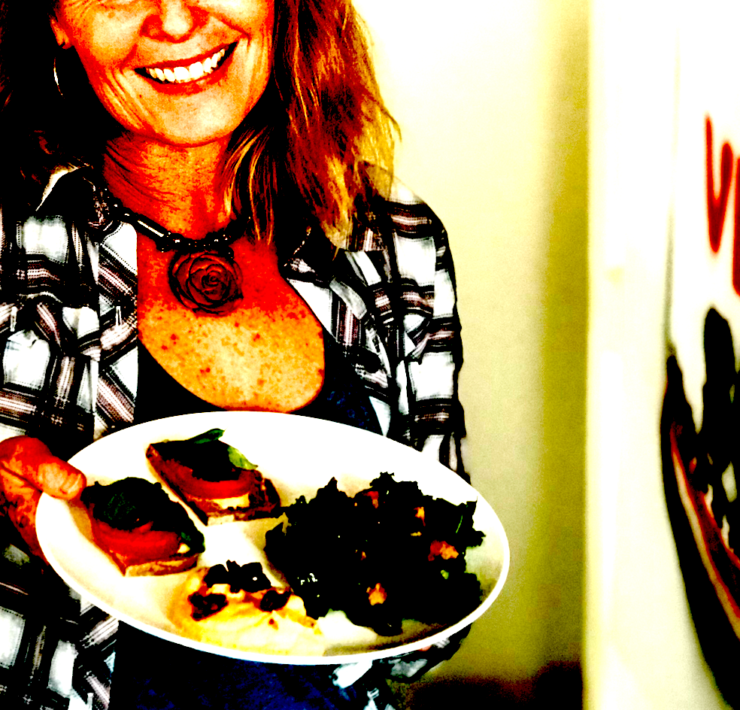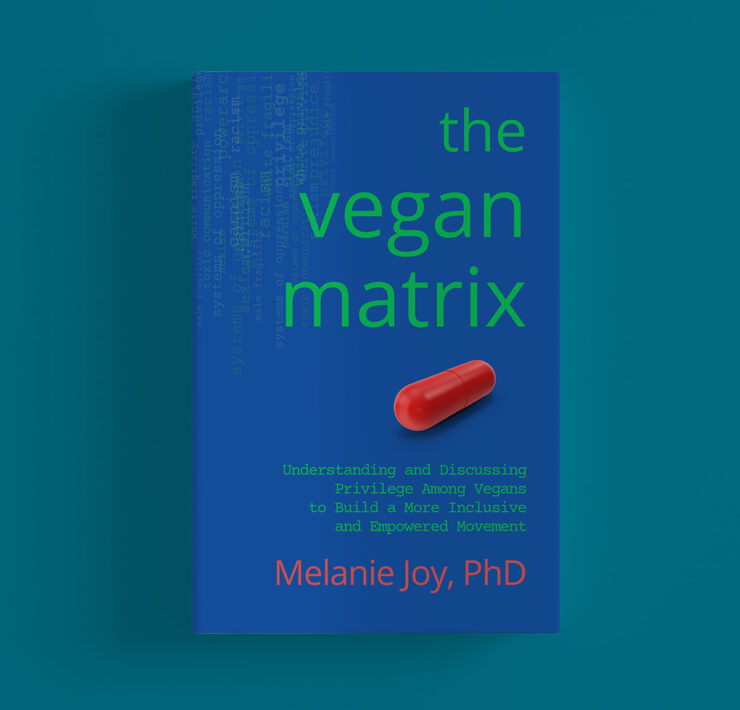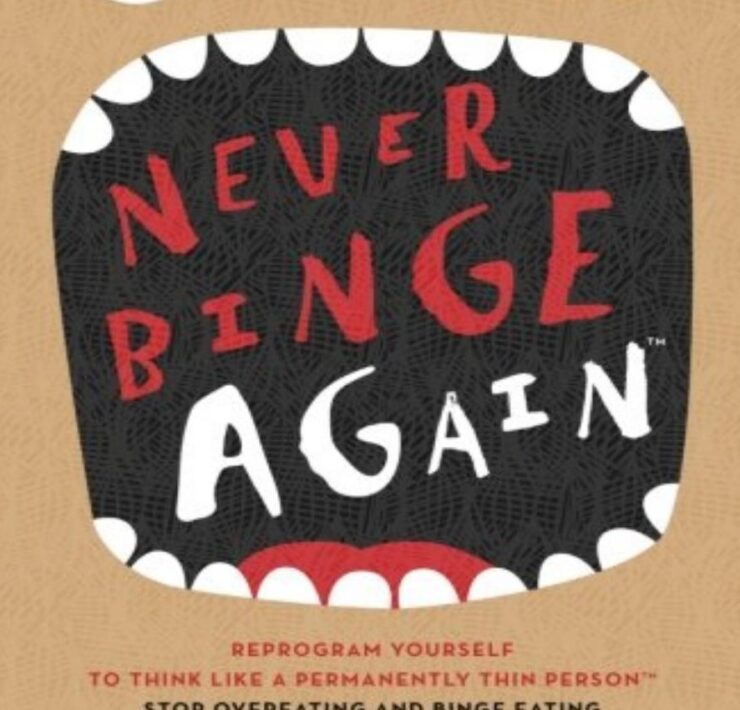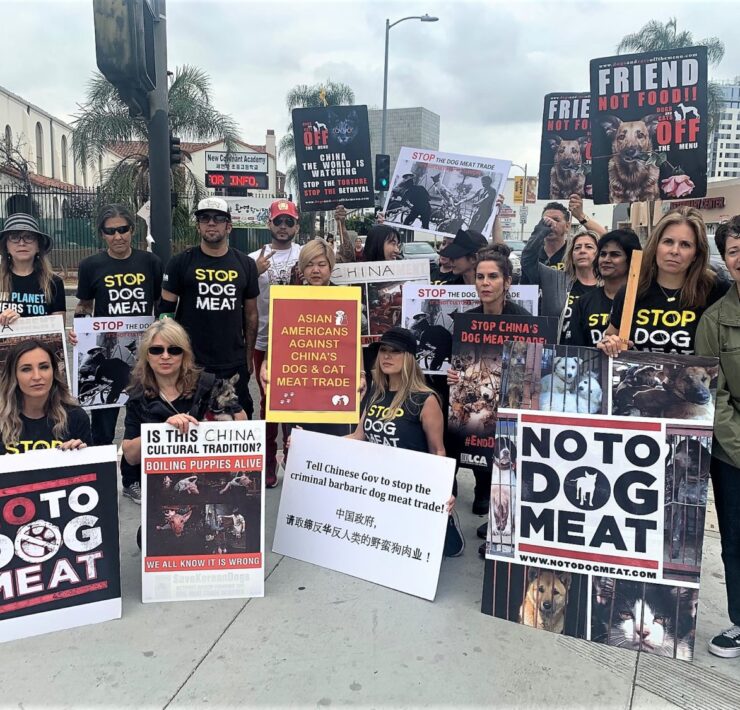How To End Injustice Everywhere: Melanie Joy’s Latest Book

Social psychologist Melanie Joy’s new book, How To End Injustice Everywhere, addresses the issue of infighting within social justice movements such as veganism.
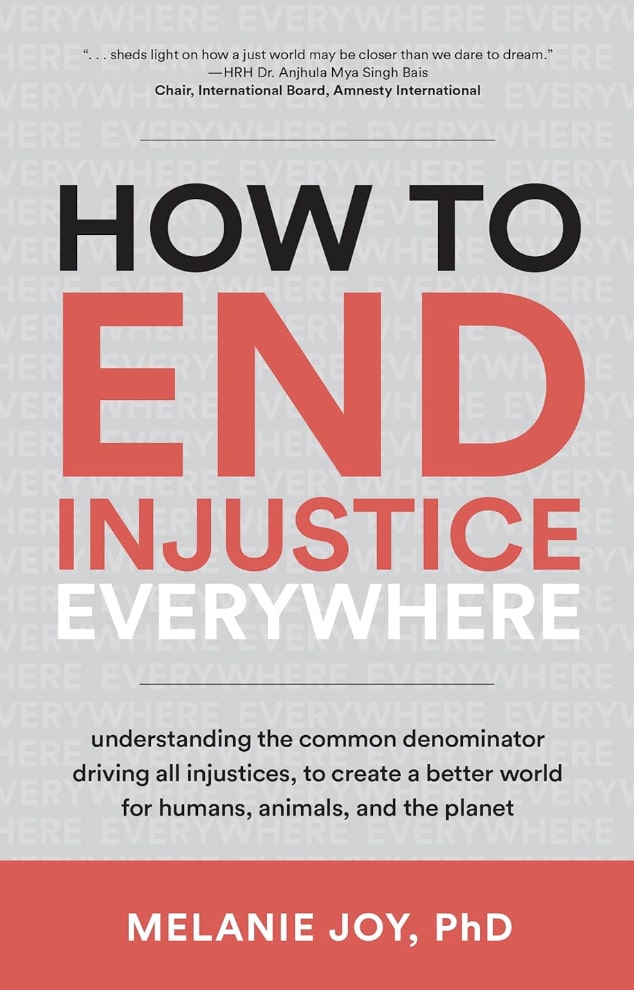
Los Angeles, January 29th, 2024 — In this complex and often cruel world, just about everyone has experienced a sense of injustice at some point. Wouldn’t it be wonderful to figure out a way to end injustice everywhere, once and for all? Now. there’s a blueprint for doing just that.
Social psychologist, best-selling author, and lecturer Dr. Melanie Joy has a new book called, “How To End Injustice Everywhere: Understanding the Common Denominator Driving All Injustices to Create a Better World for Humans, Animals, and the Planet.”
Be it war, racism, sexism, domestic abuse or animal exploitation, Dr. Joy makes a powerful case that all injustice shares, “…a common denominator, which is relational dysfunction, or dysfunctional ways of relating – between social groups to other individuals, to other animals and the environment, and even to ourselves…” This toxic, non-relational mentality is based, writes Dr. Joy, “…on the belief in a hierarchy of moral worth: the belief that some individuals or groups are more worthy of moral consideration, of being treated with respect, than others.”
UnchainedTV’s Jane Velez-Mitchell speaks at length with Dr. Joy, who unpacks the concept of relational dysfunction and explains why it’s also a source of infighting in the vegan movement, which she is working to end.
A Book About Fighting Injustice More Effectively
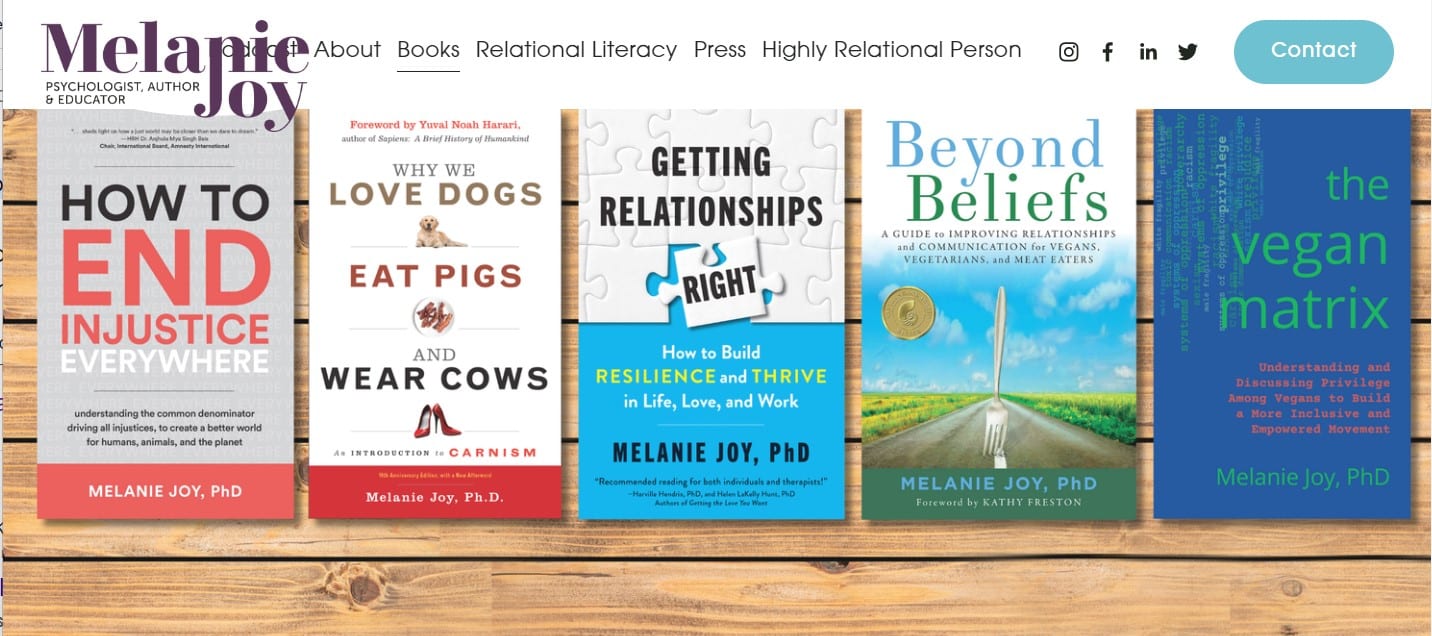
Melanie Joy, PhD, EdM, is a Harvard-educated social psychologist specializing in the psychology of eating animals, social transformation, and relationships. She is best known for her pioneering work developing her theory of carnism, a term she coined and which she defines as “the invisible belief system, or ideology, that conditions people to eat certain animals.” Her analyses have helped explain why people engage in “non-relational” behaviors — behaviors that harm other people, animals, the planet, and themselves — as well as how to change this pattern. Dr. Joy is the award-winning author of seven books, including the bestselling Why We Love Dogs, Eat Pigs, and Wear Cows. She is also an internationally recognized speaker who has presented her work in fifty countries across six continents. This is what she said about the goal of new book.
“I wanted to shed light on the common structure of all unjust systems, as well as the common mentality, most importantly, that drives these unjust systems, like racism, patriarchy, speciesism, carnism, environmental degradation, and so on. One of the goals of the book is to help advocates from all justice movements who are working to end any injustice to really understand the interconnectedness of all injustices, because, with this understanding then, advocates for humans, animals or the environment are better able to support each other’s efforts.”
Despite Dr. Joy’s work within the vegan movement, this book is not only for vegans. It seeks to help anyone working for any just and progressive cause to become a more effective advocate by avoiding a toxic, non-relational mentality.
“The good news is that really understanding this mentality, and knowing the tools of how to work to shift it, can make a tremendous difference not only in our activism but also in our movement.” — Dr. Melanie Joy, social psychologist
The Problem of Infighting
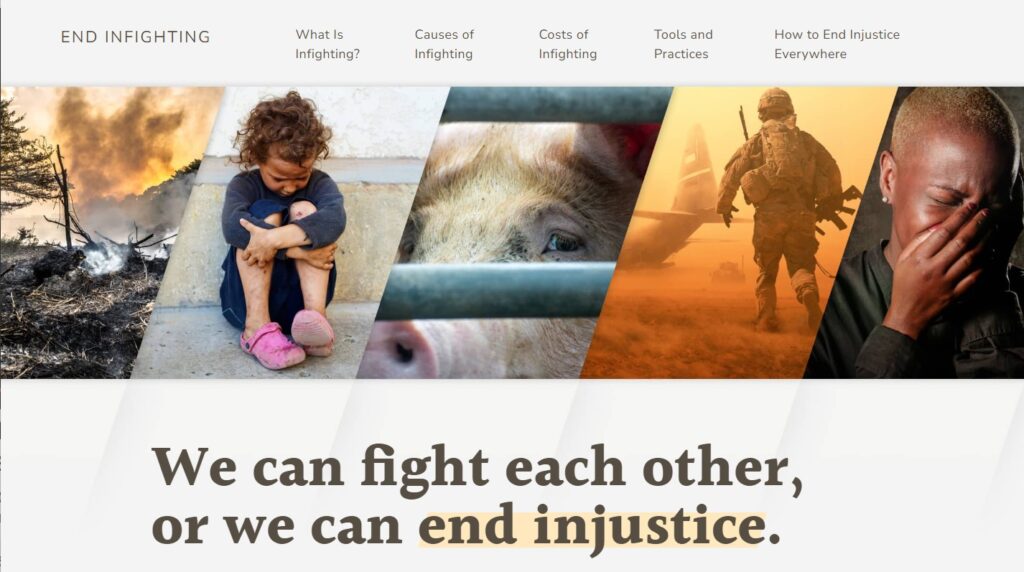
The last chapter of the book deals with the very specific issue of infighting. Says Dr. Joy,
“I wanted to provide practical tools to help advocates reduce infighting and build more resilient and impactful groups and movements for justice. Infighting is bleeding a tremendous amount of resources from the vegan movement.”
Infighting is a type of fighting directed toward members of one’s own group. Dr. Joy postulates that the mentality that causes injustice is the very same mentality that causes activists to fight each other within the movement, namely relational dysfunction, which manifests as people not treating others with respect. In the case of the vegan movement, Dr. Joy has identified the following types of infighting:
“Infighting very often takes various forms, but there are two areas in particular that vegans tend to argue about the most when we’re talking about infighting on the movement-wide level, not within teams and organizations — which is another form of infighting. The focus tends to be on ideology. What does it mean to be vegan? How should we be vegan? Or define being vegan. And the second one is about strategy. How do we reach the goal of creating a vegan world?”
The book offers practical tools so vegans can proactively stop what Dr Joy calls the virus of infighting. She has now created a website to fully explore this issue: infighting.org/
“It’s really important that we learn how to take a different approach to communication with each other so that we can learn from each other.” — Dr. Melanie Joy, social psychologist
Infighting is Not In-Disagreeing
Dr. Joy is clear that having a difference of opinion, or challenging unwanted attitudes, is not infighting. She says…
“Infighting is not in-disagreeing. It’s really important to appreciate that disagreements about various issues, from philosophy to strategy, to values, are absolutely essential for creating a diverse and impactful movement. Our differences are our power, in many ways. Some of these disagreements are particularly important… we need to be really careful not to refer to healthy challenges that are helping the movement evolve as infighting, or we could be weaponizing the concept and silencing critical voices.”
Bullying and Anger
Dr. Joy says situations that people call infighting may, instead, be best described as outright bullying, where individuals use their social media platforms and/or positions of power to attack others. Dr. Joy also talks about what role anger plays in all this:
“A key driver of infighting is high levels of anger in our movement, which makes sense. I’m not putting it down. Anger is the emotional response, the legitimate, healthy emotional response. You’re witnessing or experiencing injustice, and your anger is an indication that your moral compass is working. Your anger gives you the motivation and the sense of power necessary to take proactive measures, and action to protect someone else or yourself. Your anger is important. How we relate to our anger, however, determines whether our anger is helpful or toxic and harmful. And, a lot of us have not learned how to relate to our anger in a healthy way.”
“People in all movements have differences because people are different, and people have different ideas about how to interpret and practice their own ideologies.” — Dr. Melanie Joy, social psychologist
The Magic Formula

According to Dr. Joy, the best way to deal with the underlying problem of relational dysfunction is by “building relational literacy.” Dr. Joy explains what this is:
“Relational literacy is the understanding of and ability to practice healthy ways of relating. Relational dysfunction is based on a particular mentality. It is the non-relational mentality, and relational literacy is based on the opposite mentality.”
Dr. Joy advocates a “Formula for Healthy Relating.” This is what she says the formula is:
“The formula for any healthy interaction is based on doing two things: we practice integrity and we honor dignity. When we practice integrity, that means we basically practice the core moral values of compassion and justice. Another way to say this is we practice respect. We treat the other individual the way that we would want to be treated if we were in their position. When we honor someone’s dignity, that means that we think of them as being worthy of occupying space on the planet and of being treated with respect. So, when we practice integrity and honor dignity this leads to two things: this leads to us feeling a sense of connection and a sense of security.”
The non-relational mentality violates integrity and harms dignity, and this leads to a sense of disconnection and insecurity. Understanding all these concepts, and finding practical ways to apply them, is what Dr. Joy’s new book is all about.
“I am so deeply inspired by people in this movement. It’s what gets me out of bed in the morning. It’s what motivates me to do the work. The compassion, the commitment, and the tirelessness of people who just care so deeply.” — Dr. Melanie Joy, social psychologist
What's Your Reaction?
Jordi Casmitjana is a vegan zoologist and author.




